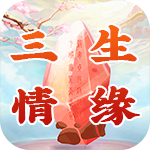1. 英語句子的分類(詳細點的)
句子(句子分類,句型轉換)
句子的分類:由句子結構來講,可分為三類簡單
一、簡單句:由一個主語(或并列主語)和一個謂語(或并列謂語)構成的句子。
eg. We cleaned the windows and tidied the room.
二、并列句:由并列連詞and, but,so,or,for等把兩個或兩個以上的簡單句連起來的句子。
eg. 1)I come from China and he comes from Japan.
2)Hurry up,or you'll miss the train.
3)He looked for it everywhere, but he couldn't find it.
4)She didn't know the answer to the question,so she asked the teacher.
5)He's interested in music while John is interested in sports.
三、復合句
A.賓語從句:賓語從句在復合句中作主句的賓語,引導賓語從句的關聯詞有that, if/whether, what, who, whose, which, why, when, where, how等。
1、連接詞
1) 由連接詞that引導陳述句,在口語中that常省略。
eg. He said that he would like to see the headmaster.
2)由連接詞whether/if引導一般疑問句,whether和if 常可互換,但下列場合一般用whether.
①介詞后的賓語從句:I'm thinking of whether he'll come.
②與or not連用:I don't know whether I should go or not.
3)由連接代詞what,who(whom,whose)which或連接副詞when,where,why,how引導特殊疑問句。 eg. Do you know who/whom she is waiting for?
2、語序:不管賓語從句是陳述句、一般疑問句或特殊疑問句,都要用陳述句語序,也就是說主謂次序不能顛倒。連接詞+主謂結構
(1).Bill wanted to know who did this.
(2).I don't know what's the matter with Bob?
(3).I don't know what's wrong with them?
3、時態:一般說來,主從句時態要統一。如果主句是一般現在時,從句可根據需要用其它任何時態;如果主句是一般過去時,從句應該用相應的過去時態范疇(也就是用一般過去時,過去進行時,過去將來時,過去完成時)。
eg.①Lily wanted to know whether her grandma liked the handbag.
②I asked the teacher where we would have the meeting.
③Could you tell me how I can get to the zoo?
如果從句表明的是一個客觀事實或真理,那麼無論主句是什麼時態,從句都只能用一般現在時。 eg. The teacher told us that light travels much faster than sound.
注意:在think后的賓語從句,如果需要表示否定意義,一般不在賓語從句中否定,而是在主句中否定。
eg. I don't think that English is easy.
I think that English is not easy. ( 誤)
2. 英語句子的種類
自己的經驗喲,幫你整理一下:
一般有簡單句、復合句、并列句。
簡單句又分為五類:
主謂,主謂賓,主系表,主謂賓賓補,主謂間賓直賓
復合句:也就是簡單句的某個成分變成叢句了。
是由主句+從句構成,它是英語中比較復雜的句子結構。一般來說,英語中一個句子只能有一個謂語,如果出現兩個謂語動詞,那麼其中一個謂語動詞只能以從句的形式或并列句或非謂語動詞的形式出現。所謂從句是指從屬于主句的句子,由從屬連詞連接。從句的種類有很多,但根據其性質和作用可以分為:名詞性從句,形容詞性從句(即定語從句),副詞性從句(即狀語從句)三大類
并列句 :也就是幾個簡單句或復合句搞在一起
由連接詞或 " ; "把兩個以上(含兩個)的簡單句連在一起的句子叫做并列句。在并列句中,各個簡單句意思完整,不受其他簡單句的影響。
These flowers are white and those flowers are red。
這些花是白色的而那些花是紅色的。
3. 英語句子的種類和例句
句子的分類:由句子結構來講,可分為三類簡單 一、簡單句:由一個主語(或并列主語)和一個謂語(或并列謂語)構成的句子。
We cleaned the windows and tidied the room. 二、并列句:由并列連詞and, but,so,or,for等把兩個或兩個以上的簡單句連起來的句子。 1)I come from China and he comes from Japan. 2)Hurry up,or you'll miss the train. 3)He looked for it everywhere, but he couldn't find it. 4)She didn't know the answer to the question,so she asked the teacher. 5)He's interested in music while John is interested in sports. 三、復合句 賓語從句:賓語從句在復合句中作主句的賓語,引導賓語從句的關聯詞有that, if/whether, what, who, whose, which, why, when, where, how等。
句子的用途分為四種: 四、陳述句 (declarative sentence):用來說明事實的句子。 China is the largest country in Asia. 中國是亞洲最大的國家。
I didn't tell him anything. 我什麼也沒有告訴他。 五、疑問句 ( Question) , 即用來提出問題等的句子,不同的疑問句用不同的語調。
Are you a doctor or a teacher? 你是醫生還是教師? Which would you like, tea or coffee? 你想要哪樣,是茶還是咖啡? Is he sleeping, reading, or watching TV? 他是在睡覺,還是在看書,還是在看電視? 六、祈使句 通常以動詞原形開頭。 Take this seat. Be careful. 否定結構: Don't move. Don't be late. 七、感嘆句 有多種表現形式,有時一個單詞、短語或一個詞組也可成為感嘆句。
What a clever boy he is! (他是個)多麼聰明的男孩啊! What an interesting story it is! (這是個)多麼有趣的故事啊。
4. 英語的句子分類
句子的種類 感嘆句結構 強調句結構 用助動詞進行強調 反意疑問句 倒裝 倒裝句之全部倒裝 倒裝句之部分倒裝 以否定詞開頭作部分倒裝 so,either,nor作部分倒裝 only在句首要倒裝的情況 as,though引導的倒裝句 其他部分倒裝 主謂一致 并列結構作主語謂語用復數 主謂一致中的靠近原則 謂語動詞與前面的主語一致 謂語需用單數 指代意義決定謂語的單復數 與后接名詞或代詞保持一致 虛擬語氣 真實條件句 非真實條件句 混合條件句 虛擬條件句的倒裝 特殊的虛擬語氣詞:should wish的用法 比較if only與only if It is (high) time that need"不必做"和"本不該做" 名詞性從句 引導名詞性從句的連接詞 名詞性that-從句 名詞性wh-從句 if,whether引導的名詞從句 否定轉移 定語從句 關系代詞引導的定語從句 關系副詞引導的定語從句 判斷關系代詞與關系副詞 限制性和非限制性定語從句 介詞+關系詞 as,which非限定性定語從句 先行詞和關系詞二合一 what/whatever/that。
關系代詞that的用法 狀語從句 地點狀語從句 方式狀語從句 原因狀語從句 目的狀語從句 結果狀語從句 條件狀語從句 讓步狀語從句 比較while, when, as 比較until和till 表示"一…就…"的結構 連詞 并列連詞與并列結構 比較and和or 表示選擇的并列結構 表示轉折或對比 表原因關系 比較so和 such 情態動詞 情態動詞的語法特征 比較can 和be able to 比較may和might 比較have to和must must表示推測 表示推測的用法 情態動詞+have+過去分詞 should和ought to had better表示最好 would rather表示"寧愿" will和would 情態動詞的回答方式 帶to的情態動詞 比較need和dare否定句和一般疑問句(1)常見的否定句做法1.含有be動詞的否定句:規則:在be動詞后面+not,另外is not可縮寫成isn't,are not可縮寫成aren't,was可縮寫成wasn't,were可縮寫成weren't,但am not不可縮寫。2.含情態動詞的否定句:規則:在情態動詞后+not,必要時可縮寫。
3.帶有行為動詞的句子否定句做法:(1)單數第三人稱做主語(he she it或代表單個人或物的第三人稱名詞):規則:要在行為動詞前加上助動詞doesn't,然后找動詞恢復原形。(2)其它人稱作主語:規則:在行為動詞前加don't,句子中行為動詞的用原形。
句型1.含be動詞的基本結構:be的現在形式為am,is,are.(1)主語是I,用am.(2)主語是he,she,is,一個人名或一個稱呼(也就是第三人稱單數),用is.(3)主語是復數或是you,用are.(4)在有助動詞,情態動詞句子和祈使句中用be原形。2.動詞have的基本句型:謂語動詞have表示擁有某物,有人稱和數的變化。
當主語是第一人稱(I,we),第二人稱(you)以及第三人稱復數(they及其他復數名詞并列主語等),用have,當主語為第三人稱單數(he,she,it或單數名詞),用has.(1)肯定句:主語+have/has+賓語+其他(2)一般疑問句:Do/Does+主語+have+賓語+其他?(3)肯定句:主語+don't/doesn't+have+賓語+其他3.There be結構:(1)there be的現在時是there is或there are,表示有。存在形式的有,其后加上地點,就是“在某處有什麼”。
there is表示有的東西為單數,或不可數形式。there are表示有的東西為復數。
(2)some,any常用在there be句型中,some一般在肯定句中表示幾個或一些,any一般在否定句或一般疑問句中使用。(3)有的人或物是幾種,以第一種的形式為準。
(4)特殊疑問句為How much / many …?和What's …?4. 祈使句用來表示命令、請求或勸告的句子,稱為祈使句,祈使句的否定式是在前面加Do not。5. 感嘆句感嘆句就是表示喜怒哀樂等強烈感情的句子。
由how或what+被強調的部分+其余的陳述部分。6. 反義疑問句反義疑問句是問話的人對問的問題有一定的看法,需要答話的人給以證實,其結構一般為兩部分,前邊是陳述,后面是提問;如果前面是肯定形式,后面應是否定提問;而前邊是否定形式;后面則是肯定提問。
7. 現在進行時表示現在(說話瞬間)正在進行或發生的動作。結構為be(am / is / are)+動詞的現在分詞,現在分詞的變化有三種,句式是:(1)肯定句:主語+am / is / are +v.ing(2)否定句:主語+am / is / are + not + v.ing(3)一般疑問句:Am / Is / Are + 主語+ v. ing8. 一般現在時表示經常性或習慣性的動作或目前存在的狀態,也表示主語具備的特性和能力及客觀真理。
(1)當主語是第一,第二和第三人稱復數時,肯定句:主語+動詞原形+其他否定句:主語+don't +動詞原形+其他一般疑問句:Do+主語+動詞原形+其他?(2)當主語是第三人稱單數時肯定句:主語+動詞(單三)+其他否定句:主語+doesn't+動詞+其他一般疑問句:Does +主語+動詞+其他?(3)動詞的第三人稱單數有四種基本的變化規則。(4)特殊疑問句的結構:特殊疑問詞+助動詞do / does +主語+動詞原形+其他?祈使句及there be句型(一)祈使句1. 祈使句的特點及構成。
(1)祈使句是提出請求、建議、命令、號召等的句子。(2)祈使句的主語常常省略,句中的謂語動詞放句首,或在謂語之前用please,please也可放在句末。
(3)祈使句中的動詞后面通常用一介詞,構成固定搭配,在句中作謂語。(4)祈使。
5. 英語句子的種類和例句
(一)按使用目的可分為陳述句、疑問句、祈使句和感嘆句。
1) 陳述句(Declarative Sentences):說明一個事實或陳述一種看法。
Light travels faster than sound. 光比聲速度快。 (說明事實)
The film is rather boring. 這部電影很乏味。
(說明看法)
2) 疑問句(Interrogative Sentences):提出問題。有以下四種:
a. 一般疑問句(General Questions):
Can you finish the work in time
你能按時完成工作嗎
b. 特殊疑問句(W Questions; H Questions):
Where do you live 你住那兒
How do you know that 你怎麼知道那件事
c. 選擇疑問句(Alternative Questions):
Do you want tea or coffee
你是要茶還是要咖啡
d. 反意疑問句(Tag-Questions):
He doesn't know her, does he
他不認識她,對不對
3) 祈使句(Imperative Sentences):提出請求,建議或發出命令,例如:
Sit down, please. 請坐。
Don't be nervous! 別緊張!
4) 感嘆句(Exclamatory Sentences):表示說話人驚奇、喜悅、憤怒等情緒,例如:
What good news it is! 多好的消息啊!
(二)句子按其結構可以分為以下三類:
1) 簡單句(Simple Sentences):只包含一個主謂結構句子叫簡單句,例如:
She is fond of collecting stamps. 她喜歡集郵。
(主) (謂)
2) 并列句(Compound Sentences):包含兩個或兩個以上主謂結構的句子叫并列句,句與句之間通常用并列連詞或分號來連接,例如:
The food was good, but he had little appetite.
(主) (謂) (主)(謂)
食物很精美,但他卻沒什麼胃口。
3) 復合句(Complex Sentences):包含一個主句從句和一個或幾個從句的句子叫復合句,從句由從屬連詞引導,例如:
The film had begun when we got to the cinema.
主句 從句
我們到達電影院的時候,電影已經開演了。
(三)基本句型(Basic Sentence Patterns):英語中千變萬化的句子歸根結底都是由以下五種基本句型組合、擴展、變化而來的:
1)主 + 動(SV)例如:
I work. 我工作。
2)主 + 動 + 表(SVP)例如:
John is busy. 約翰忙。
3)主 + 動 + 賓(SVO)例如:
She studies English. 她學英語。
4)主 + 動 + 賓 + 補(SVOC)例如:
Time would prove me right. 時間會證明我是對的。
5)主 + 動 + 間賓 + 直賓(SVOiOd)例如:
My mother made me a new dress. 我母親給我做了一件新衣裳。
6. 英語優美句子摘抄,180句
1.Don't cry because it is over, smile because it happened.不要因為結束而哭泣,微笑吧,為你的曾經擁有。
2.When falling in love, some lose their head, others lose their heart.在陷入情網的時候,有些人丟了頭腦,另一些人丟了心3.Happineis good health and a bad memory.幸福是良好的健康加上糟糕的記性4.Love is the only thing that holds the dark at bay.唯有愛可以把黑暗囚在波港灣里。5.Love is a game that two can play and both win.愛是兩個人玩的雙贏游戲。
6.Life has taught us that love does not consist in gazing at each other but in looking outward together in the same direction .愛不是從相互凝視之中獲得的,倒是可以由同朝一個方向眺望而產生。這是生活給予我們的教訓7.Love is an act of endleforgiveness, a tender look which becomesBeing deeply loved by someone gives you strength, loving someone deeply gives you courage.被愛給你力量,愛人給你勇氣。
8.The best and most beautiful things in the world can not be seen or even touched, they must be felt with heart.世界上最美好最漂亮的東西是看不見的,也摸不著的。它們必須用心去感應。
9.No matter how far apart we are, my thought always find their way back to you. Missing you.無論我們相距多麼遙遠,我的思念總在你的身邊。想你!10.The hardest part is being away from you…the best part will be when we're together again. Missing you, with all my heart.最難莫過離你而去…最好莫過重新歡聚。
全心想你。11.I never consider ease and joyfulneas the purpose of life itself.我從來不認為安逸和享樂是人生本來的目的。
12.Don't ever forget, you are loved very, very much!千萬不要忘記,你擁有無盡的愛!13.I am not afraid of tomorrow for I have seen yesterday and love today.我不害怕明天,因為我經歷過昨天,又熱愛今天。14The value of life lies not length of days, but in the use of we make of them.生命的價值不在于能活多少天,而在于我們如何利用這些曰子。
15.Courage is the ladder on which all the other virtues mount.勇氣是其他美德攀登的梯子。16.Better to light one candle than to curse the darkness.與其詛咒黑暗,不如燃起蠟燭。
17.You don't love a girl because she is beautiful, but she is beautiful because you love her!你不是因為她的美麗而愛她,而她卻因為你的愛而美麗。18.Love alone could waken love!只有愛才能喚醒愛!(出自雨露文章網)19.I'll never forget the time we share together.我永遠也不會忘記我們在一起的曰子。
20.I love you not because of who you are, but because of who I am when I am with you.我愛你,不是因為你是一個怎樣的人,而是因為我喜歡與你在一起時的感覺。21.No man or woman is worth your tears, and the one who is, won't make you cry.沒有人值得你流淚,值得讓你這麼做的人不會讓你哭泣。
22.The worst way to misomeone is to be sitting right beside them knowing you can't have them.失去某人,最糟糕的莫過于,他近在身旁,卻猶如遠在天邊。23.Never frown, even when you are sad, because you never know who is falling in love with your smile.縱然傷心,也不要愁眉不展,因為你不知是誰會愛上你的笑容。
24.To the world you may be one person, but to one person you may be the world.對于世界而言,你是一個人;但是對于某個人,你是他的整個世界。25.Don't waste your time on a man/woman, who isn't willing to waste their time on you.不要為那些不愿在你身上花費時間的人而浪費你的時間。
26.Just because someone doesn't love you the way you want them to, doesn't mean they don't love you with all they have.愛你的人如果沒有按你所希望的方式來愛你,那并不代表他們沒有全心全意地愛你。27.Don't try so hard, the best things come when you least expect them to.不要著急,最好的總會在最不經意的時候出現。
28.Maybe God wants us to meet a few wrong people before meeting the right one, so that when we finally meet the person, we will know how to be grateful.在遇到夢中人之前,上天也許會安排我們先遇到別的人;在我們終于遇見心儀的人時,便應當心存感激。J'aime les gens qui peuvent me faire rire我喜歡能讓我笑的人。
Le monde est si grand, ce n'est pas facile du tout de se rencontrer. 世界這麼大,能遇見,不容易。 Parfois, il ne dépend pas de toi d'être riche, mais il dépend toujours de toi d'être heureux. 有時候,你并沒有能力讓自己變富有。
但是,任何時候,你都有能力讓自己變幸福。 Avec toi, je ne veux pas d'avenir, je veux un présent. 和你在一起,我不求明朝來日,只要你許我一個現在。
Malgré l'avilissement de l'argent, la cherté de la vie reste toujours. 金錢貶值,生活卻始終珍貴。 Plaisir d'amour ne dure qu'un moment, Chagrin d'amour dure toute la vie。
幸福的愛情只能持續一段時間,而憂傷的愛情卻能持續一生。 L'amour, c'est être toujours inquiet de l'autre. 所。
7. 求英語簡短優美句子摘抄
1、For our ever-lasting friendship, send sincere blessings and warmgreetings to my friends whom I miss so much.
一份不渝的友誼,執著千萬個祝福,給我想念的朋友,溫馨的問候。
2、Never quit because something went wrong; Quit because you tried your hardest and nothing made it better.
不要因為有了難題就馬上放棄;一定要竭盡全力,如果這樣還不行,才可以選擇放棄。
3、You can go as far as you want to go.
心有多遠,你就能走多遠。
4、Acting as if nothing borne in mind is the best revenge.It's all for myself to live better.
若無其事,原來是最好的報復。生活得更好,是為了自己。
5、Faith: not wanting to know what the truth is.
信仰就是不想知道真相是什麼。
6、Byron: I am never away from you. Even now, I shall not leave you. In another land, I shall be still that one who loves you, loves you beyond measure beyond measure.
拜倫:我從未離開過你。即使現在,我也不會離開你。在另一個世界,我依舊是愛的那個人。愛你,無窮無盡,天長地久。
7、We shall always save a place for ourselves, only for ourselves. Andthen begin to love. Have no idea of what it is, who he is, how to loveor how long it will be. Just wait for one love. Maybe no one will comeout, but this kind of waiting is the love itself.
在自己面前,應該一直留有一個地方,獨自留在那里。然后去愛。不知道是什麼,不知道是誰,不知道如何去愛,也不知道可以愛多久。只是等待一次愛情,也許永遠都沒有人。可是,這種等待,就是愛情本身。
8、If living on the earth is a mission from the lord… living with you is the award of the lord…
如果活著,是上帝賦予我最大的使命,那麼活者有你,將會是上帝賦予我使命的恩賜……
9、I love you, love can not my world without you.
我愛你,愛到我的世界不能沒有你。
10、east,west,home is the best!
金窩窩,銀窩窩,不如自己的狗窩窩;家是最好的。
11、Until all is over one's ambition never dies.
不到黃河心不死。
8. 英語句子劃分
1.Long ago, (the love apple )was
















